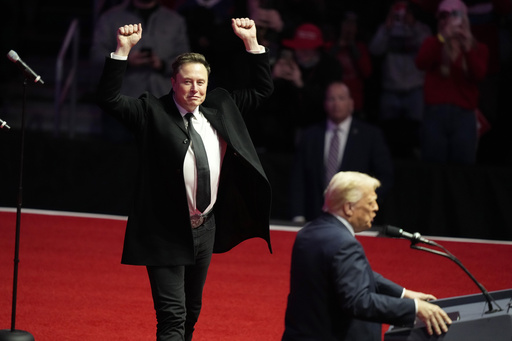President Donald Trump took a decisive step on Friday by signing an executive order that formally implements his earlier statement regarding the suspension of aid to South Africa. This action is in response to a law aimed at remedying injustices from the apartheid era, a move the White House has characterized as discriminatory towards the nation’s white minority population.
“As long as South Africa engages with adversaries on the global stage and permits violent acts against innocent minority farmers, the United States will cease its aid to the country,” the White House indicated in a brief regarding the executive order. The administration is also poised to announce a program that would allow for the resettlement of white South African farmers and their families as refugees in the U.S.
This decision was prompted by a recently passed law in South Africa that empowers the government to expropriate land from individuals in certain situations. The White House claims this law overtly discriminates against Afrikaners, an ethnic minority.
Last month, South African President Cyril Ramaphosa enacted the Expropriation Act, which enables the government to seize land in instances where it is deemed unutilized or when redistribution is considered to serve the public good.
The law aims to rectify the injustices inflicted during the apartheid period, a time when Black individuals faced dispossession of their land and were relegated to designated non-white regions.
Highlighting the law’s implications, Elon Musk—an ally of Trump and the leader of the newly formed Department of Government Efficiency—has voiced concerns on social media, portraying the legislation as a potential threat to the white minority in South Africa.
The executive order also touches upon South Africa’s involvement in presenting allegations of genocide against Israel to the International Court of Justice.
This freeze on financial aid to South Africa is part of a broader pause on most U.S. international assistance under Trump’s administration, which seeks to implement what he terms an “America First” foreign policy.




